Hiatus Hernia Surgery Dubai
Best surgeon for fundoplication in Dubai. Minimally Invasive Solutions for Hernia Repair
Choosing the right surgeon for hernia surgery is essential. Dr. Sherif is a Consultant Upper GI specialist in laparoscopic surgery, with a primary focus on Hiatus Hernia surgery. He provides comprehensive care for patients with hiatus hernias.
With over a decade of experience, Dr. Sherif delivers effective, minimally invasive solutions for repairing Hiatus Hernias. His expertise in Hiatal Hernia Surgery Dubai ensures every patient receives personalized and attentive treatment, always aiming for the best possible outcome. Dr. Sherif is also skilled in Laparoscopic fundoplication Dubai, offering advanced surgical options tailored to individual needs.
Understanding Hiatus Hernias: What You Need to Know
A Hiatus Hernia develops when part of your stomach pushes through into your chest area. This happens through an opening in your diaphragm, the muscle that helps you breathe. This condition is more likely to occur in individuals aged 50 and above.
Often, a Hiatus Hernia does not cause any symptoms, and you might not know you have it. However, for some, it can lead to discomfort that affects daily life. Symptoms can include heartburn, acid reflux, or difficulty swallowing. If you are experiencing persistent symptoms, consult with a healthcare professional to determine whether sliding Hiatus Hernia surgery is the right solution for you.
Typical Signs of Hiatus Hernia
- Heartburn (A sharp, burning pain in the chest, usually after eating)
- Reflux (Small amounts of food returning with a burning sensation)
- Bad Breath (A foul odour in the mouth from stomach acid or bile)
- Bloating (A feeling of fullness or swelling in the stomach)
- Nausea (A sick feeling in the stomach that can lead to vomiting)
- Dysphagia (Difficulty swallowing or the sensation of food sticking)
These symptoms are also frequently seen in gastroesophageal reflux disease (GERD), which can occur in conjunction with a hiatal hernia. Many patients experiencing these issues may benefit from exploring GERD surgery as a treatment option.
What Is Hernia Surgery?
A Minimally Invasive Solution
This procedure is typically fast and highly effective, with the majority of patients noticing substantial relief from their symptoms. In addition to reducing pain and discomfort, hernia surgery also plays a crucial role in preventing serious complications like obstruction or organ strangulation. minimally invasive reflux surgery is another advanced technique that can offer similar benefits for suitable patients.
- Long-term solution for hernia repair
- Avoid side effects associated with long-term use of ppi medications
- Relieves pain and discomfort
- Improves daily mobility and quality of life
- Quick recovery with minimally invasive options
Book A Consultation with Dr Sherif Awad to Determine If Hiatus Hernia Surgery is Right for You.
Effective Ways to Manage Hiatus Hernia Symptoms
For individuals experiencing mild symptoms, implementing certain lifestyle changes can help ease the discomfort associated with a Hiatus Hernia. For some patients, surgical interventions such as Nissen fundoplication Dubai may be recommended to effectively manage severe or persistent cases.
Do’s
- Eat Smaller, Frequent Meals
- Raise the Head of Your Bed
- Maintain a Healthy Weight
Don’ts
- Avoid Trigger Foods and Drinks
- Don’t Eat Late at Night
- Avoid Tight Clothing
- Quit Smoking
- Limit Alcohol Intake
By following these simple lifestyle adjustments, many individuals with a Hiatus Hernia can effectively manage their symptoms and improve their overall quality of life. However, if symptoms persist or worsen, it is important to seek medical advice for further evaluation and treatment.
Diagnosis of Hiatus Hernia
Diagnosing a Hiatus Hernia usually requires a few tests to find the cause of symptoms like heartburn or chest pain. The most common tests include:
- Endoscopy: A camera tube examines the food pipe and stomach to check for issues.
- Esophageal pH and Manometry Study: Measures esophageal muscle function and acid reflux.
- Barium Swallow: BariumX-rays taken after swallowing a liquid to outline the oesophagus and stomach.
Managing Hiatus Hernia: Treatment & Relief
A Hiatus Hernia generally does not require treatment unless it leads to discomfort. If symptoms become bothersome, available treatment options may include medication or, in some cases, surgery. For those considering surgical intervention, consulting a fundoplication surgeon Dubai can provide specialized care and guidance.
Medication Options
- Antacids: Neutralise stomach acid for quick heartburn relief, but overuse may cause side effects.
- Receptor Blockers: Reduce acid production for longer-lasting relief (e.g., Famotidine).
- Proton Pump Inhibitors (PPIs): Stronger acid blockers that help heal the oesophagus.
Surgical Options
Surgery required only if medication fails or causes side effects. Dr. Sherif Awad Specialises in hiatus hernia repair and tailors’ treatment to each patient’s needs.
- Laparoscopic Surgery: Minimally invasive procedure with small incisions and a camera to repair the hiatus hernia.
- Anti-reflux Procedure: Often performed alongside surgery (e.g., Nissen fundoplication) to create a stronger valve at the top of the stomach.
Schedule A Consultation Today!
What to Anticipate:
Key Stages of Hiatus Hernia Surgery
Undergoing Hiatus Hernia surgery can feel overwhelming but understanding what to expect at each stage can help ease anxiety and support a smoother recovery. If you are being treated for an Upper abdominal hernia Dubai, you can expect your surgeon to utilize advanced techniques designed for optimal outcomes. Below is a breakdown of the key phases; before, during, and after surgery to help you prepare with confidence.
- Pre-operative Preparations
- During Surgery
- Post-operative Care
- Consultation with Dr. Awad to discuss symptoms and medical history.
- Dr. Awad will explain the benefits and risks of the surgery.
- Tests such as endoscopy and pH/manometry study to assess GERD severity.
- The procedure is performed under general anaesthesia.
- Small incisions are made for laparoscope and surgical instruments.
- The stomach is wrapped around the lower esophagus to prevent acid reflux.
- Most patients can return home the same day or after an overnight hospital stay.
- Specific instructions on diet and activity restrictions will be provided.
- Difficulty swallowing is common initially but improves over time.
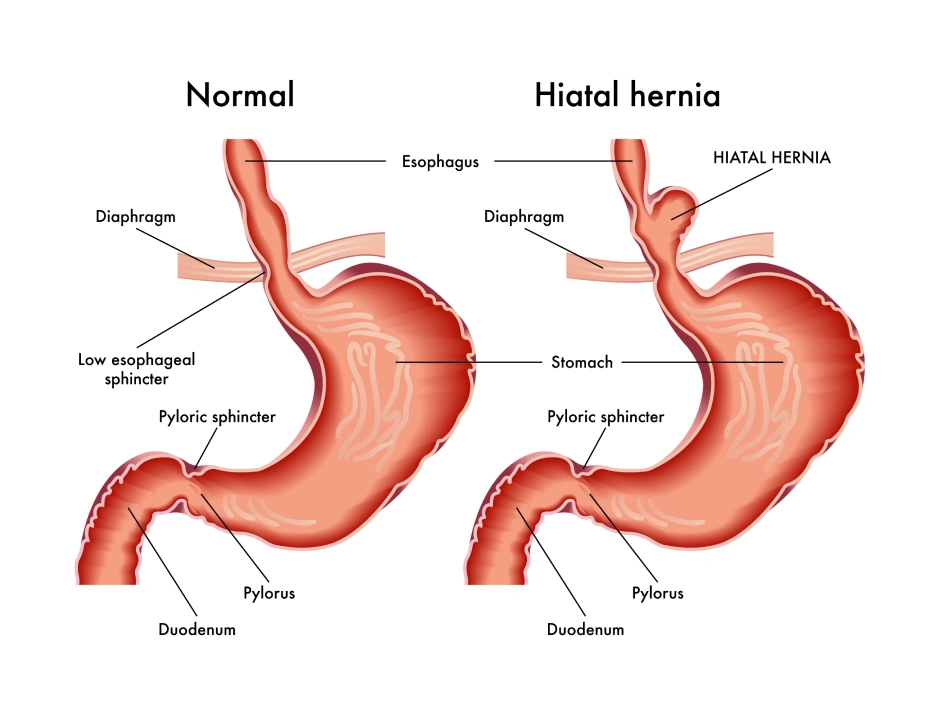
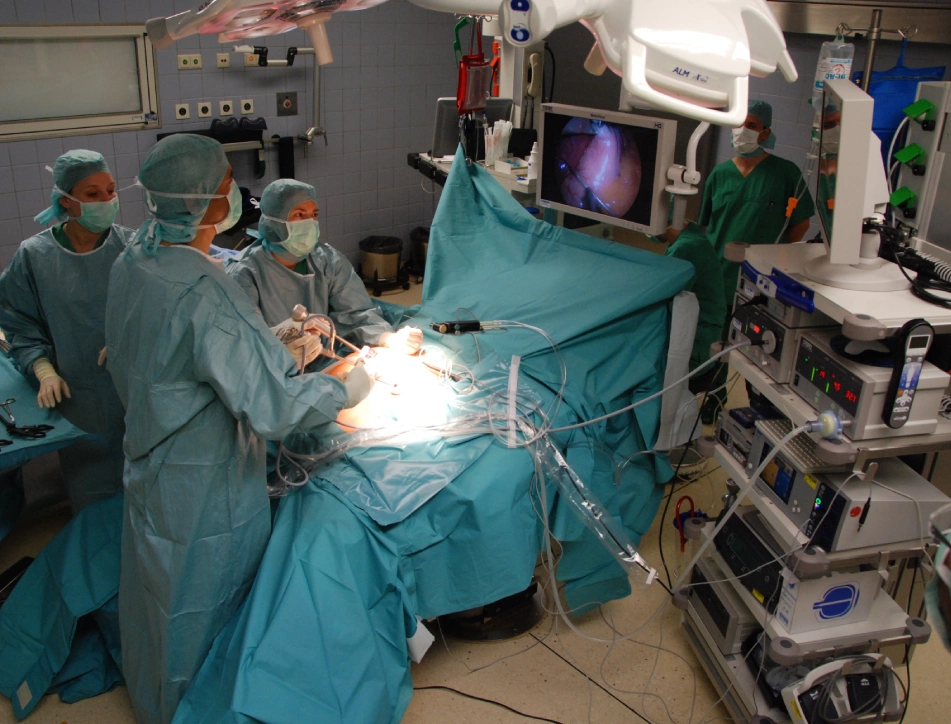
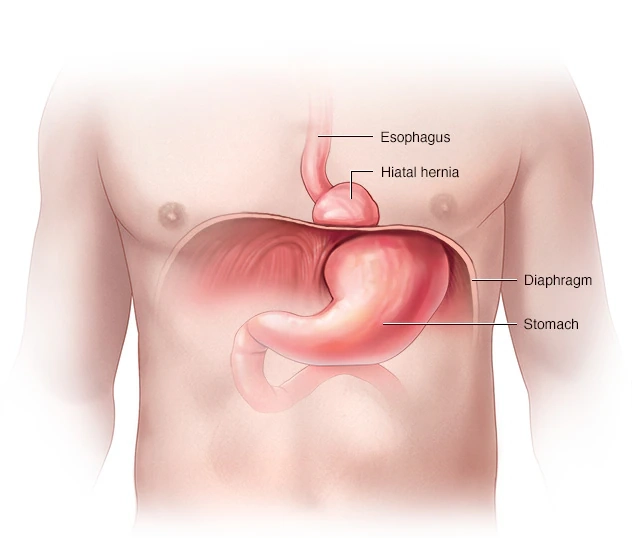

Risks And
Considerations
- Includes infection, bleeding, or adverse reactions to anaesthesia.
- Temporary difficulty swallowing, bloating, or discomfort during the healing process.
- Possibility of recurrence of the hiatus hernia or reflux symptoms over time.
- Surgery may not be suitable for all patients, especially those with certain health conditions.
Client Stories:
Real-Life
Transformations
A Positive Experience
After researching my options in Dubai, I consulted with a highly recommended surgeon about my condition. The team took the time to thoroughly explain the risks and benefits, which helped me feel confident about my decision. The focus on Hiatal Hernia Surgery was reassuring, and I felt well-informed throughout the entire process. My recovery went smoothly, and I’m very pleased with the results.
Ahmed Al Mansouri
Exceptional Care and Support
As a resident of Dubai, I wanted to make sure I was in the best hands for my procedure. My surgeon answered all my questions and discussed every possible risk, allowing me to decide if the surgery was truly right for me. Thanks to this detailed approach, I felt comfortable proceeding with paraesophageal hernia repair. The outcome exceeded my expectations, and the medical staff’s professionalism made all the difference.
Fatima Al Suwaidi
Confident and satisfied
Choosing a surgeon for my condition in Dubai was a significant decision. From the initial consultation, I was impressed by how clearly the risks were outlined and the attention given to my individual needs. Having a comprehensive understanding of paraesophageal hernia surgery gave me peace of mind, and I’m grateful for the excellent care I received from Dr Sherif.
Saeed Al Nuaimi
FAQs:
Common Questions About Hiatus Hernia Surgery
Most major health insurance providers in Dubai cover surgery to repair hiatal and paraesophageal hernias, but we recommend checking your specific policy or contacting our office for assistance.
Symptoms including heartburn, chest pain, difficulty swallowing, and regurgitation, often worsening after meals or when lying down. Laparoscopic fundoplication is the most common surgical option. In some cases, paraoesophageal hernia repair may be needed.
Most patients can expect to return to normal activities within two to three weeks after laparoscopic fundoplication. Recovery may vary based on individual health and adherence to post-operative instructions.
Hiatal hernia surgery, including paraoesophageal hernia repair, is generally safe in Dubai when performed by experienced surgeons. Discussing your specific risks with your doctor will help ensure the best possible outcome.
During your consultation, Dr Sherif will review your medical history, discuss your symptoms, and explain your treatment options. He ensures every patient receives clear, professional advice and a tailored treatment plan.
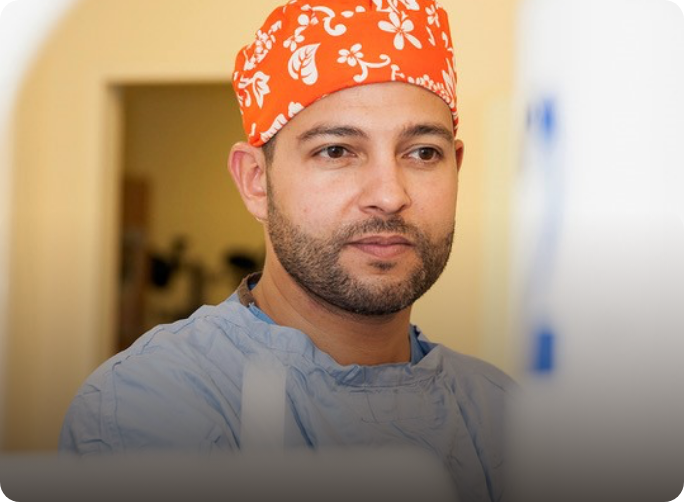
Hiatal hernia Specialist Dubai
Contact Now
Don’t let Hiatus Hernia control your life. Dr Sherif Awad specializes in minimally invasive Hiatus Hernia surgery to provide long-lasting relief.
Call us now or Book an Appointment Online! Book Today.
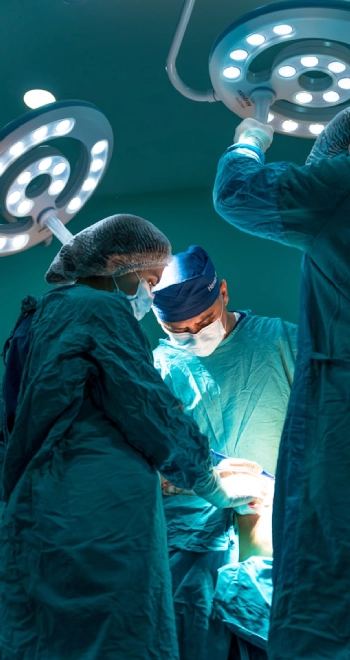
General Surgeries
Achalasia Treatment
GIST Tumour Surgery
Small Bowel Resection
GIST Tumour Surgery
Adhesion Removal Surgery
Lipoma & Lump Removal
Esophageal Balloon Dilatation
Diagnostic Laparoscopy

